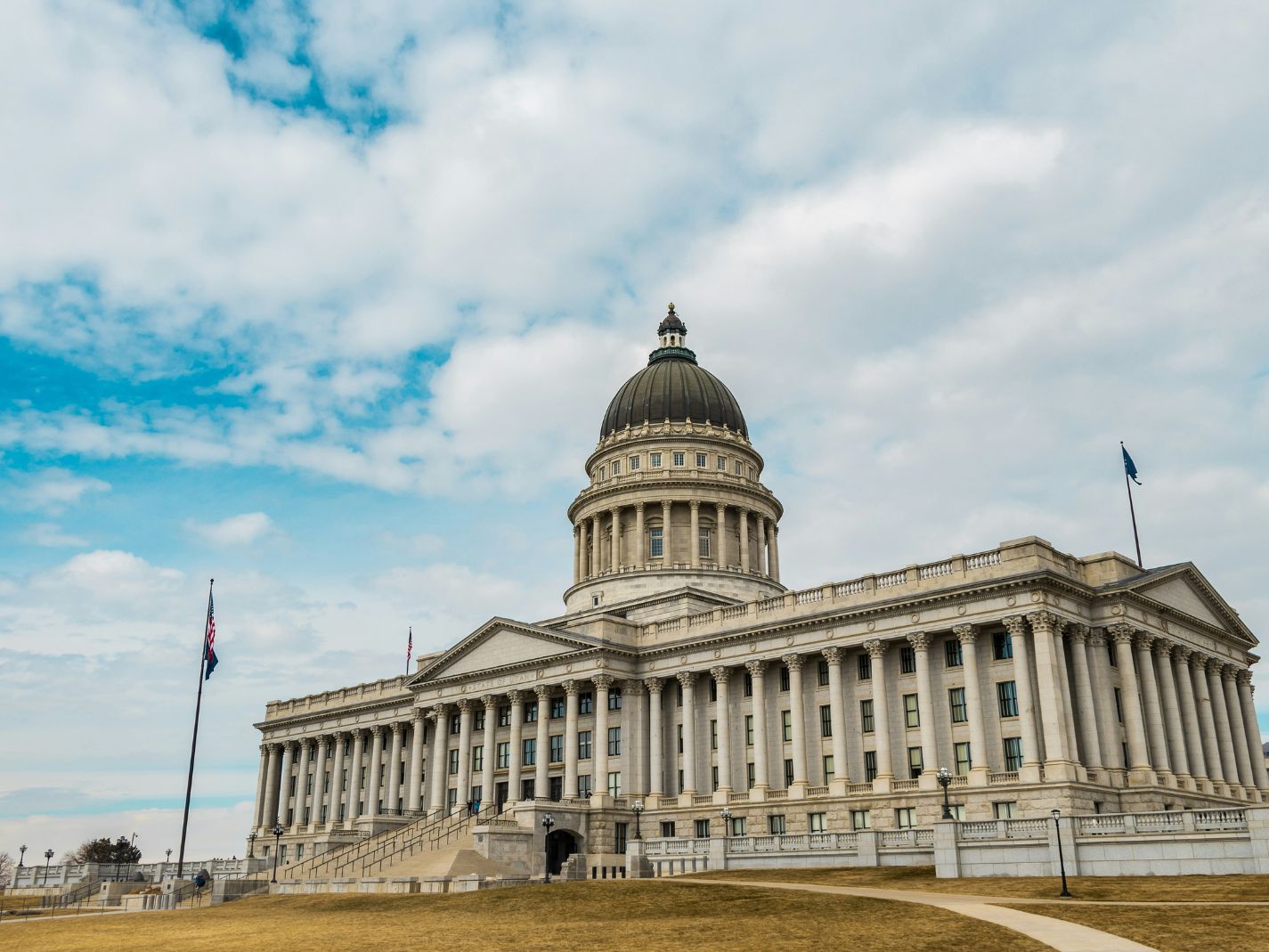Iowa Legislators Introduce Bills Informed by Civics Alliance Model Legislation
The Civics Alliance is delighted that Iowa state legislators, especially Representative Taylor Collins jointly with his fellow members of the House Committee on Higher Education, have introduced at least fourteen bills to reform public K-12 and postsecondary education—and we are honored that significant numbers of these bills appear to have been informed by our model legislation. These bills jointly seek to:
- restore the civic mission and content of Iowa’s public K-12 and higher education, especially by reform of the public university General Education Requirements;
- require transparency about the syllabi of public university courses;
- establish an autonomous School within the University of Iowa free of the radical establishment that controls American higher education and dedicated to free inquiry;
- require transparency and accountability about public higher education finances, including its dependence on foreign sources;
- remove administrative programs and policies that impose discriminatory ideologies such as “diversity, equity, and inclusion” on public universities;
- prevent radicalized accrediting organizations from vetoing these reforms; and
- give the state legislature the means to review academic programs at public universities and determine which are structurally radicalized.
The bills that appear to be informed by our model legislation and research include:
- House Study Bill 30: A bill for an act requiring students to pass the United States citizenship and immigration services naturalization civics test as a condition of high school graduation and high school equivalency diplomas, which we believe has been informed by our model Civics Literacy Act.
- House Study Bill 32: A bill for an act relating to public schools, including requiring public schools to display the national motto and the state motto and to start each day of classroom instruction with silent time, which we believe has been informed by our model Document Display Act.
- House Study Bill 52: A bill for an act establishing a school of intellectual freedom at the university of Iowa, which we believe has been informed by our model School of Intellectual Freedom Act.
- House Study Bill 53: A bill for an act prohibiting certain requirements for students and faculty at regents institutions relating to diversity, equity, inclusion, and critical race theory and including applicability provisions, which we believe has been informed by our model Campus Intellectual Diversity Act.
- House Study Bill 54: A bill for an act requiring reporting by regents institutions of funding from certain foreign sources and including effective date provisions, which we believe has been informed by our research and policy advocacy on China’s Confucius Institutes.
- House Study Bill 59: A bill for an act providing for public availability of certain financial information of regents institutions and including effective date provisions, which we believe has been informed by our model College Finances Act.
- House Study Bill 55: A bill for an act requiring regents institutions to make certain course syllabus information available to the public online and including effective date provisions, which we believe has been informed by our model Syllabus Transparency Act.
- House Study Bill 56: An Act establishing completion of a course on American history and civil government as a requirement for the completion of a baccalaureate degree program at a public institution of higher education, which we believe has been informed by our model American History Act.
- House Study Bill 63: A bill for an act providing for general education requirements for undergraduate students at regents institutions and including applicability provisions, which we believe has been informed by our model Core Curriculum Act.
We believe that all these bills are necessary for academic reform and well-tailored to achieve their objectives. Iowa state legislators of course should and will examine these bills closely and modify them as their collective judgment dictates. But we believe these bills are excellent as is, and that they will marvelously improve Iowa education if they are passed substantially in their current form.
Ohio Legislators Re-Introduce Bills Informed by Civics Alliance Model Legislation
The Civics Alliance welcome the introduction of Senate Bill 1, the Advance Ohio Higher Education Act, by Ohio State Senator Jerry Cirino. Representative Tom Young has introduced a companion bill to advance simultaneously in the Ohio House, House Bill 6. Senator Cirino, Representative Young, and their colleagues have acted as exemplary legislators by their dedication to higher education reform. They have demonstrated idealism, practicality, and grit. SB 1 will do an extraordinary amount to depoliticize Ohio’s public higher education system, strengthen intellectual diversity, and restore its accountability to Ohio policymakers and citizens. We think these provisions will make especially good improvements to Ohio public higher education:
- Requirements that colleges and universities receiving state funds commit themselves to free speech and intellectual diversity, and to prohibiting both “diversity statements” and the inculcation of discriminatory concepts such as “diversity, equity, and inclusion.”
- Syllabus transparency requirements for state institutions of higher education.
- Establishment at state institutions of higher education of an undergraduate General Education Requirement in American government or American history, for a course that will include documents of American liberty including the Declaration of Independence, the Constitution, the Emancipation Proclamation, and Martin Luther King’s Letter from Birmingham Jail.
- Detailed budgetary transparency for each state institution of higher education.
- Requirements of nondiscrimination by race, sex, or other group identity at state institutions of higher education.
We enthusiastically endorse SB 1 and hope that it will swiftly become law.
A previous version of this bill, Ohio SB 83, was introduced in Ohio’s 2024-2025 legislative session and passed by the Ohio Senate. We endorsed Ohio SB 83, and testified before the Ohio Senate and Ohio House in its favor—and, to repeat what we said then, we endorse SB 1 not least because it takes some of its language and its concerns from different bills in the Civics Alliance’s Model Higher Education Code, drafted by the National Association of Scholars. We intended for these bills to inspire state legislators to craft their own legislation, adapted to meet their political circumstances. It is an honor that Senator Cirino has considered our model language useful for Ohio. His adaptations to our model language have turned our suggestions into practicable legislation, which we will be delighted to publicize throughout the nation. Senator Cirino also has added further reforms, which were not in the Model Higher Education Code—but soon may be, because they too should be models for legislators in other states.
Articles and Resources Worth Reading
Freedom in Education, Beanie Geoghegan speaks with Will Fitzhugh, the editor of the Concord Review.
Goldwater Institute: Despair vs. Hope and Ohio Taxpayers Need to Know About DEI’s $200 Million Price Tag.
Hoover Institution: State Civics Requirements in 2024.
Independent Institute: Comparative Ethnic Studies Curriculum.
Samuel Lair, CRT 2.0.
Scott Yenor, Tools for Conservative Education Reformers; and Restoring Confidence in the University of Wyoming.
Testimony
Would you like to be on a list of people prepared to give testimony in favor of a state bill to reform civics education? If so, please get in touch with me: randall@nas.org. We need people ready to testify in all 50 states—ideally, with some personal tie to the education system, but testimony from any citizen would be good.
Civics Alliance Now Has Eleven State Affiliates
The Civics Alliance is building a network of state affiliates—groups dedicated to removing action civics in their states, whom we will list on our website. We now have eleven affiliates, in Alabama, Colorado, Georgia, Idaho, Mississippi, Missouri, Nebraska, Ohio, Pennsylvania, Rhode Island, and Texas. If you would like to form such an organization, or suggest an existing organization, please get in touch with David Randall (randall@nas.org).
Monthly American Birthright Zoom Meeting
The Civics Alliance will have its monthly Zoom session devoted to social studies standards reform on Monday, March 10, at 2:00 PM Eastern Time. Please email randall@nas.org if you would like to join these monthly Zoom meetings.
Social Studies Standards Revision Schedule
2025: Kentucky, Nebraska, Texas
2026: Colorado, Maryland, North Dakota, South Carolina
2027: Hawaii, Kansas
2029: Louisiana
2030: Minnesota
2031: Illinois
No Revision Currently Scheduled: California, Delaware, Florida, Georgia, Iowa, Massachusetts, Michigan, Missouri, New Hampshire, New Mexico, New York, North Carolina, Pennsylvania, South Dakota, Tennessee, Utah, Vermont, Virginia, Washington.
Please email David Randall (randall@nas.org) if you are interested in further information about your state’s social studies revision process, and what you can do to participate.
Continuing Priorities: Federal Legislation
At the federal level, the Civics Secures Democracy Act threatens to impose action civics nationwide.
The Civics Bill Tracker
Civics Alliance supporters may now use the Civics Bill Tracker to track all proposed federal and state legislation related to civics.
Public Action
We encourage Civics Alliance supporters to inform the public and policymakers about the stakes and consequences of action civics bills.
David Randall is the Executive Director of the Civics Alliance and Director of Research at the National Association of Scholars
Photo by BillionPhotos.com on Adobe Stock



